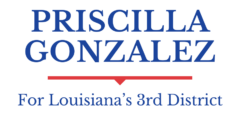As a Democratic candidate for Louisiana’s 3rd District, I believe in the urgent need for comprehensive criminal justice reform. Our current system disproportionately affects marginalized communities, perpetuates cycles of poverty, and fails to rehabilitate offenders. Reforming our criminal justice system is not just a matter of fairness but also of public safety and economic efficiency. By addressing the root causes of crime, promoting rehabilitation, and ensuring equitable treatment, we can create a safer and more just Louisiana.
Addressing Systemic Inequities
The first step towards meaningful criminal justice reform is to address the systemic inequities that plague our current system. African Americans and other minorities are disproportionately targeted, arrested, and sentenced. This disparity is evident in every stage of the criminal justice process, from policing to sentencing. Reform efforts must focus on eliminating racial bias and ensuring that all individuals are treated equally under the law.
Ending Racial Profiling and Police Brutality
Racial profiling and police brutality are critical issues that erode trust between law enforcement and the communities they serve. Implementing policies that mandate de-escalation training, body cameras, and community policing can help build trust and reduce incidents of excessive force. Furthermore, establishing independent oversight bodies to investigate police misconduct can ensure accountability and transparency.
Reforming Sentencing Laws
Harsh sentencing laws, such as mandatory minimums and three-strikes laws, have led to overcrowded prisons and devastated families and communities. These laws often do not consider the individual circumstances of each case and disproportionately affect minority populations. Reforming sentencing laws to allow for judicial discretion and alternative sentencing can help reduce prison populations and ensure fairer outcomes.
Decriminalizing Non-Violent Offenses
One of the most significant steps we can take is to decriminalize non-violent offenses, particularly drug-related crimes. The war on drugs has been a colossal failure, leading to mass incarceration without addressing the root causes of addiction and substance abuse. Shifting our approach from criminalization to treatment can help individuals recover and reintegrate into society, reducing recidivism and improving public health.
Promoting Rehabilitation and Reentry Programs
The ultimate goal of the criminal justice system should be to rehabilitate offenders and prepare them for successful reentry into society. Unfortunately, many prisons lack the resources and programs necessary to achieve this goal. Investing in education, vocational training, and mental health services within the prison system can equip inmates with the skills they need to lead productive lives upon release.
Supporting Reentry and Reducing Recidivism
Reentry programs are crucial in helping former inmates transition back into their communities. These programs provide support in finding employment, securing housing, and accessing necessary services. By supporting reentry initiatives, we can reduce recidivism rates and help former offenders become contributing members of society. Additionally, removing barriers to employment and voting rights for ex-offenders can facilitate their reintegration and civic participation.
Juvenile Justice Reform
Reforming the juvenile justice system is another critical aspect of comprehensive criminal justice reform. Children and teenagers should not be subjected to the same punitive measures as adults. Instead, the focus should be on rehabilitation and education. Implementing restorative justice practices and providing support services for at-risk youth can prevent them from entering the criminal justice system in the first place.
Addressing School-to-Prison Pipeline
The school-to-prison pipeline is a disturbing trend where disciplinary policies in schools disproportionately affect minority students, leading to their involvement in the criminal justice system. Reforming school discipline policies to focus on restorative practices rather than punitive measures can help keep students in school and out of the criminal justice system.
My Solution for Results
Criminal justice reform is a multifaceted issue that requires a holistic and compassionate approach. By addressing systemic inequities, reforming sentencing laws, promoting rehabilitation and reentry programs, and focusing on juvenile justice, we can create a fairer and safer Louisiana. As a Democratic candidate for Louisiana’s 3rd District, I am committed to championing these reforms and working towards a justice system that truly serves and protects all its citizens. Together, we can build a more just and equitable future for our state.
